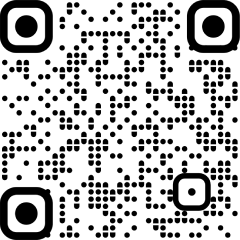Government News | Latest news on eGovernance, Digital India, Smart Cities | ET Government : ETGovernment.com
NEW DELHI: In a landmark academic overhaul, the Indian Institute of Technology Delhi (IIT Delhi) has announced a comprehensive revision of its Undergraduate, Postgraduate, and PhD curricula, aligning them with global education trends and industry demands. The new curriculum—crafted after extensive consultations with students, alumni, and industry leaders—will be implemented from the academic year 2025-26.The updated academic structure emphasizes outcomes-based learning, hands-on experience, interdisciplinary flexibility, and awareness of emerging technologies such as Artificial Intelligence (AI) and sustainability. Highlighting the forward-thinking direction, IIT Delhi Director Prof. Rangan Banerjee said, “We have reviewed and revamped our curriculum to make our graduates future-ready. The new curriculum has emerged after extensive stakeholders’ feedback and provides flexibility and hands-on learning for our students.”
Key Features of the New Curriculum
The revised undergraduate curriculum introduces increased flexibility with a modular design that allows students to choose from a wide range of electives in engineering, basic sciences, and humanities. Students can now pursue minor degrees, specializations, or opt for an honours programme alongside their B.Tech.
Significantly, the institute has introduced a pathway for undergraduate students to obtain an M.Tech. degree within five years by petitioning for it at the end of their third year. Program change based on merit at the end of the first year will continue to be available for JEE (Advanced) entrants.
The curriculum includes early exposure to departmental activities, smaller class sizes for first-year courses, and a stronger integration of lab and tutorial sessions. Courses have been infused with modules on environment, ethical reasoning, sustainability, and creative expression.
AI-Enabled Programming and Tech-Driven Learning
One of the standout innovations is the integration of AI-based code generators in introductory programming courses. This move is designed to equip students with the ability to use AI responsibly and effectively, enabling them to solve complex problems efficiently.
The credit structure across programmes has been streamlined to allow deeper engagement with electives and inter-disciplinary opportunities. Flexible core structures are also being introduced in several departments.
New Academic Programmes and Industry Connect
From 2025-26, IIT Delhi will launch three new degree programmes:
- BTech in Design (entry via JEE Advanced and UCEED)
- BS in Chemistry (first-of-its-kind at IIT Delhi, entry via JEE Advanced)
- MTech in Photonics (entry via GATE or equivalent)
The M.Tech./MS (Research) curriculum now includes a mandatory capstone project and summer internship to foster industry engagement and problem-solving through teamwork. Provisions have been made for undertaking thesis work in industry and converting to a PhD programme during the course of postgraduate studies.
The PhD curriculum has also been formally structured to enhance research autonomy, ethical scholarship, and external collaboration, including opportunities to work with industry partners.
This wide-ranging academic renewal underscores IIT Delhi’s commitment to shaping globally competitive graduates equipped to lead innovation in a rapidly transforming world.
#IIT #Delhi #Launches #Revamped #Curriculum #Focus #Flexibility #Sustainability #Emerging #Technologies #Government


